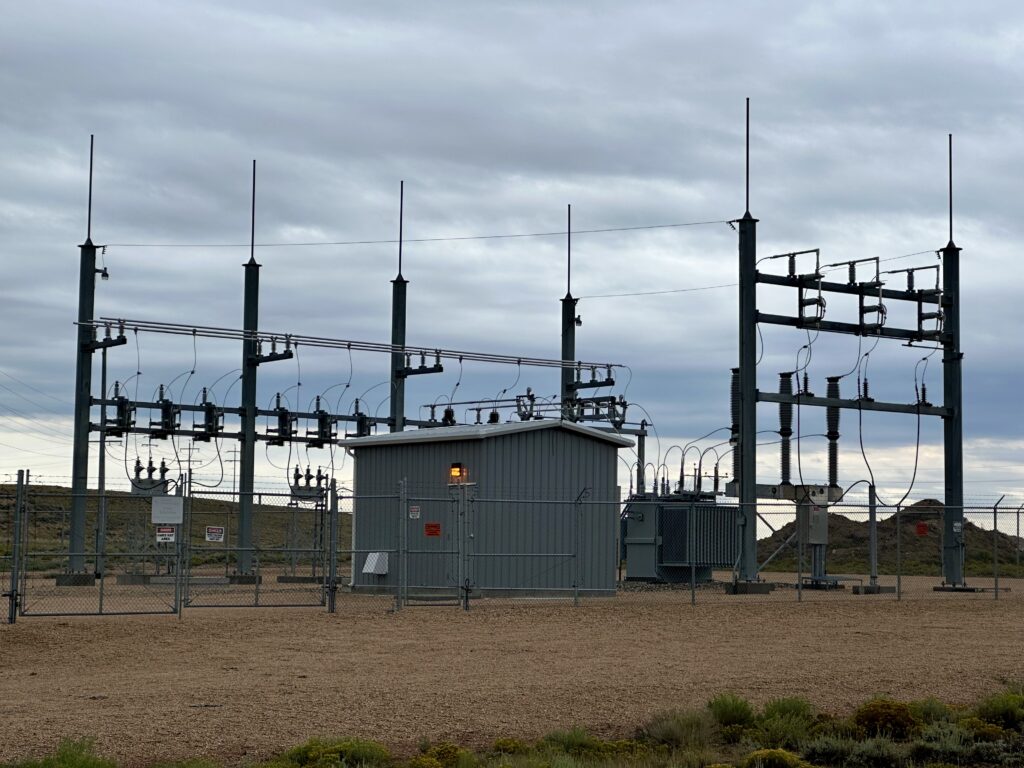Power Rates Will Rise, But Not as Much as Electric Company Requested
After months of public hearings, Wyoming Public Service Commission issues oral decision
- Published In: Other News & Features
- Last Updated: Dec 02, 2023

In this Oct. 27 screenshot, the Wyoming Public Service Commission, a three-member quasi-judicial board appointed by the governor, hears arguments both for and against proposed power rate increases. (Screenshot via Zoom)
By Carrie Haderlie
Special to the Wyoming Truth
Rocky Mountain Power will not be able to increase costs to Wyomingites by $140.2 million annually as the company requested, but the electric utility will be allowed to raise rates in an as yet undetermined amount beginning in January.
In public deliberations this week, the Wyoming Public Service Commission considered Rocky Mountain Power’s claim that its yearly net power costs had soared to $354.5 million. That amount represented the bulk of a requested rate hike of 21.6%, which the company wanted to be passed on to customers next year. The Commission approved a portion of the request, but has not released official numbers that indicate approved rates for each customer class.
Commission Chair Mary Throne said Tuesday the electric utility did not meet the burden of proof required to justify the annual cost surge. Instead, the Commission settled on a $307 million estimate of expanded costs to the company, although one expert has said even that number may change as calculations continue following the series of decisions Tuesday.

“The numbers are still a little preliminary, and I know that is frustrating to some folks,” Anthony Ornelas, administrator at the Wyoming Office of the Consumer Advocate, told the Wyoming Truth.
On Tuesday, the commission made “a series of decisions during public deliberations” that include a change in base net power costs incurred by Rocky Mountain Power. What customers want to know, though, is how that will affect their own bills. But that number is unavailable.
“The Commission made a series of decisions that has made the case final at this point; however, the company and the other parties at this point would need to take those decisions, remodel everything to get to an accurate, final rate increase,” Ornelas explained.
Later this month, the Commission will issue an official written decision on the rate case.
Based on rough estimations at this point, Ornelas said he is “generally satisfied with the overall outcome of the case in its totality.” The utility does have a right to recoup prudently incurred investment and operating investments, and the case provides that. But the decision “obviously does not give them everything they asked for,” he said.
On Tuesday, Throne said the case “unlike any other” garnered intense interest from residential customers, the business community and elected officials, likely because of the “staggering” jump in basic living expenses it represented. Although Rocky Mountain Power currently charges some of the lowest rates in the state, Throne said that fact was “immaterial” in the face of proposed increase.
During five public hearings this year, the Commission received over 3,360 public comments, including a petition with 1,721 signatures, in opposition to the request from the utility.
“[We] heard from renters in all-electric homes whose landlords control utility charges, from senior citizens on fixed incomes, as well as [from the] AARP, from commercial businesses concerned about increased utility expenses forcing them to close their doors, from small oil and gas operators, and from community leaders who said utility costs are significant part of local budgets,” Throne said.
Some suggested the PSC “deny” the application or “negotiate a better deal” for Wyoming ratepayers, but neither position is consistent with the Commission’s statutory obligations, Throne said. The PSC’s role when approached with a proposed rate request is to ensure Wyoming public utilities provide “safe, adequate and reliable services at just and reasonable rates.” In exchange for its ability to operate as a monopoly, the utility agrees to certain regulatory stipulations like rate setting hearings.
The Commission also upheld a cost-sharing ratio of 80% to customers and 20% to the company for net power costs, or the overall split in the cost of providing electricity to Wyoming residents.
The PSC did not take public comment Tuesday.













